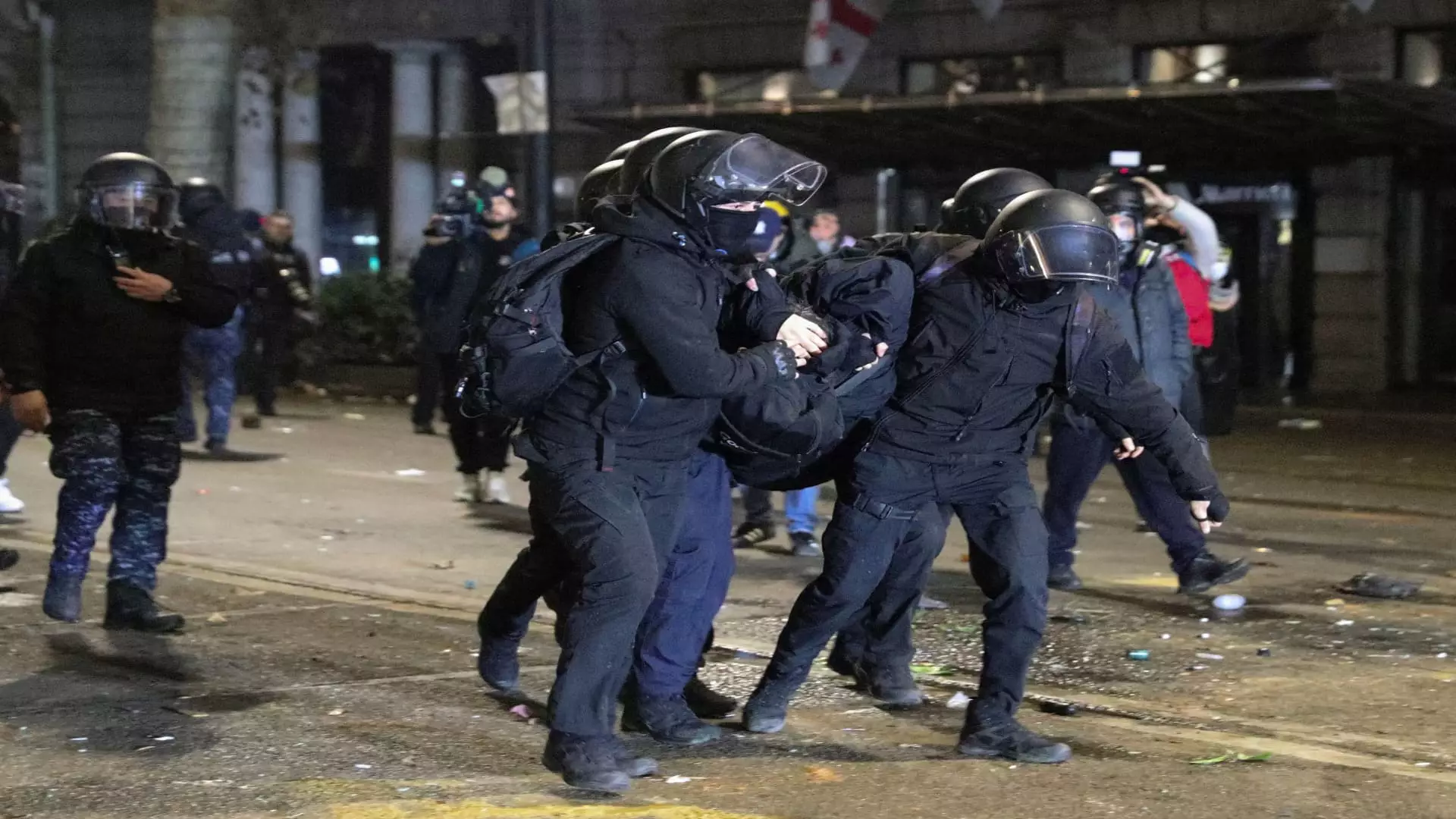In recent days, the streets of Tbilisi, Georgia’s capital, have become battlegrounds for a populace demanding accountability and change from their government. Following the administration’s decision to suspend negotiations for European Union membership, large-scale protests erupted, revealing deep-seated frustrations among citizens. As tens of thousands took to the streets, the situation escalated into violence, resulting in injuries to both protesters and law enforcement officials. This incident highlights the precarious balance between government authority and public dissent in a nation grappling with its identity on the European stage.
The protests were ignited by the Georgian government’s abrupt halt to EU accession negotiations, a move that many perceived as a step back from the country’s long-standing aspirations to join the European community. This decision coincided with a critical resolution from the European Parliament that condemned Georgia’s recent general elections as flawed and undemocratic. Such assessments have left many citizens feeling betrayed and fearful that their aspirations for a European future are crumbling.
Prime Minister Irakli Kobakhidze’s comments regarding the protests—from warnings of strict responses to accusations against political opponents—illustrate a government hesitant to engage with public sentiment. However, his assertion that the government had not abandoned European integration has only fueled further skepticism among the populace, leading to confrontations that left dozens hospitalized.
The political landscape in Georgia is as tumultuous as its streets. The ruling party, Georgian Dream, remains embroiled in controversy following allegations of electoral manipulation in the recent parliamentary elections. Opposition leaders decry the government’s influence and complicity, suggesting that Moscow lurks behind the scenes, nurturing a regime that favors Russian interests over European aspirations. Georgia’s President, Salome Zourabichvili, an advocate for EU alignment, described the current situation as a drift towards a “quasi-Russian” state. Her calls for new elections underline a broader demand for transparency and respect for democratic principles.
The opposition’s boycott of parliament has intensified the standoff between the ruling party and dissenting voices. With allegations of foreign meddling and calls for electoral reform echoing throughout the country, a consensus among diverse political factions appears increasingly crucial yet elusive.
Internationally, the fallout from Georgia’s political crisis has drawn condemnation and concern. The European Union, through its foreign policy chief, expressed disappointment over the government’s recent decisions, highlighting fears of democratic backsliding and urging authorities to uphold citizens’ rights to peaceful assembly. Such statements signal not only a crisis for Georgia’s internal policies but also a potential jeopardy for its international alliances.
Simultaneously, the U.S. State Department’s suspension of its strategic partnership has rattled the government. In dismissing the implications of these international criticisms, Kobakhidze attempted to deflect blame on outgoing officials, suggesting that the incoming administration would have a chance to reshape bilateral ties with the West. This statement reflects both political desperation and the complexities inherent in transitioning toward a truly democratic government that satisfies the ambitions of its people for European integration.
As the protests continue and citizens grapple with their disillusionment, Georgia stands at a pivotal crossroads. The aspiration for EU membership represents not only a political goal but a fundamental quest for identity and stability amidst geopolitical tensions. With internal divisions and international pressures mounting, the way forward will require courageous leadership capable of reconciling divergent visions within Georgian society.
For Georgia, the path toward European integration is fraught with difficulties, yet the resolve of its citizens might ultimately define the outcome. The streets of Tbilisi, echoing with calls for democracy and reform, stand as a testament to the enduring spirit of a nation yearning for a clearer, brighter future within Europe.


Leave a Reply